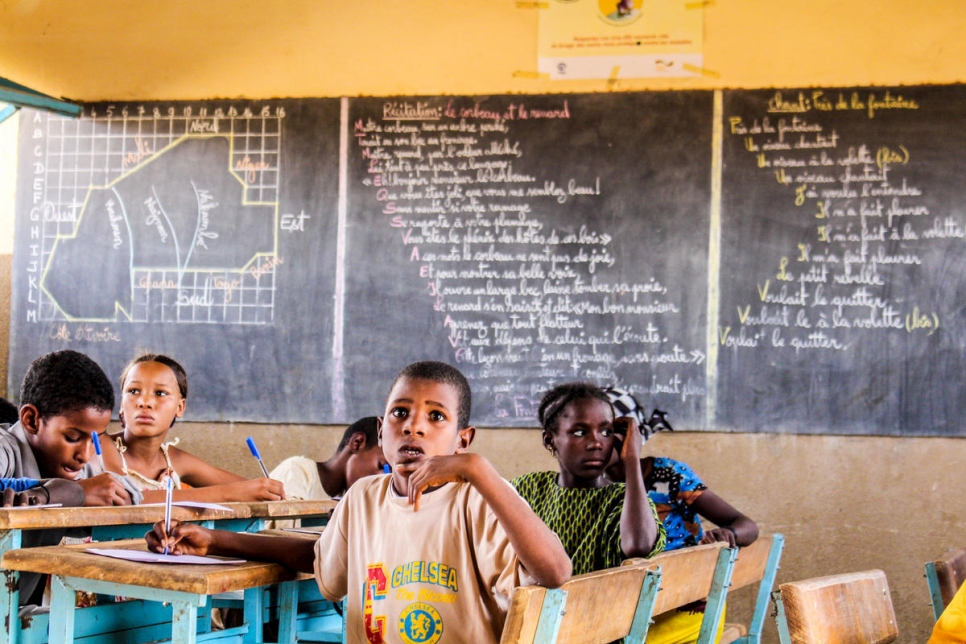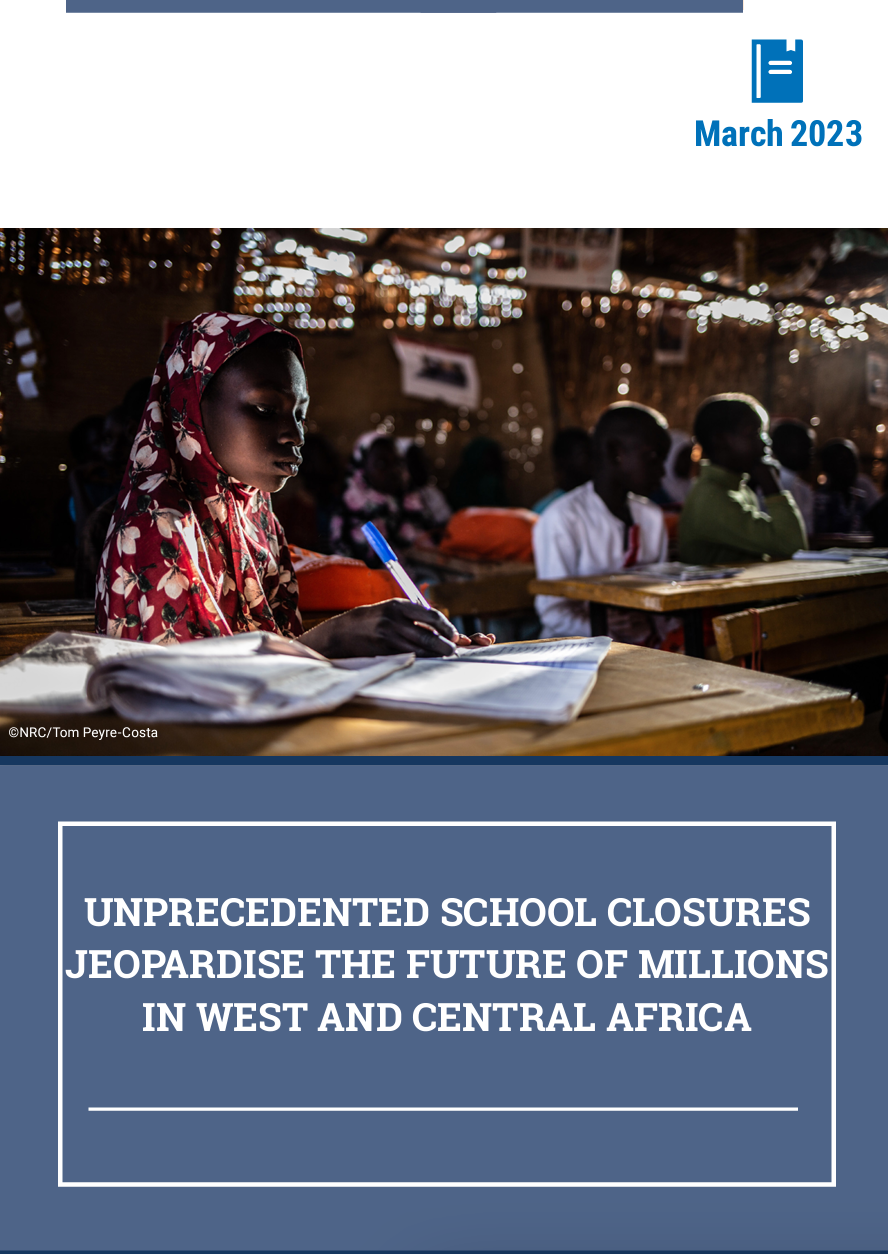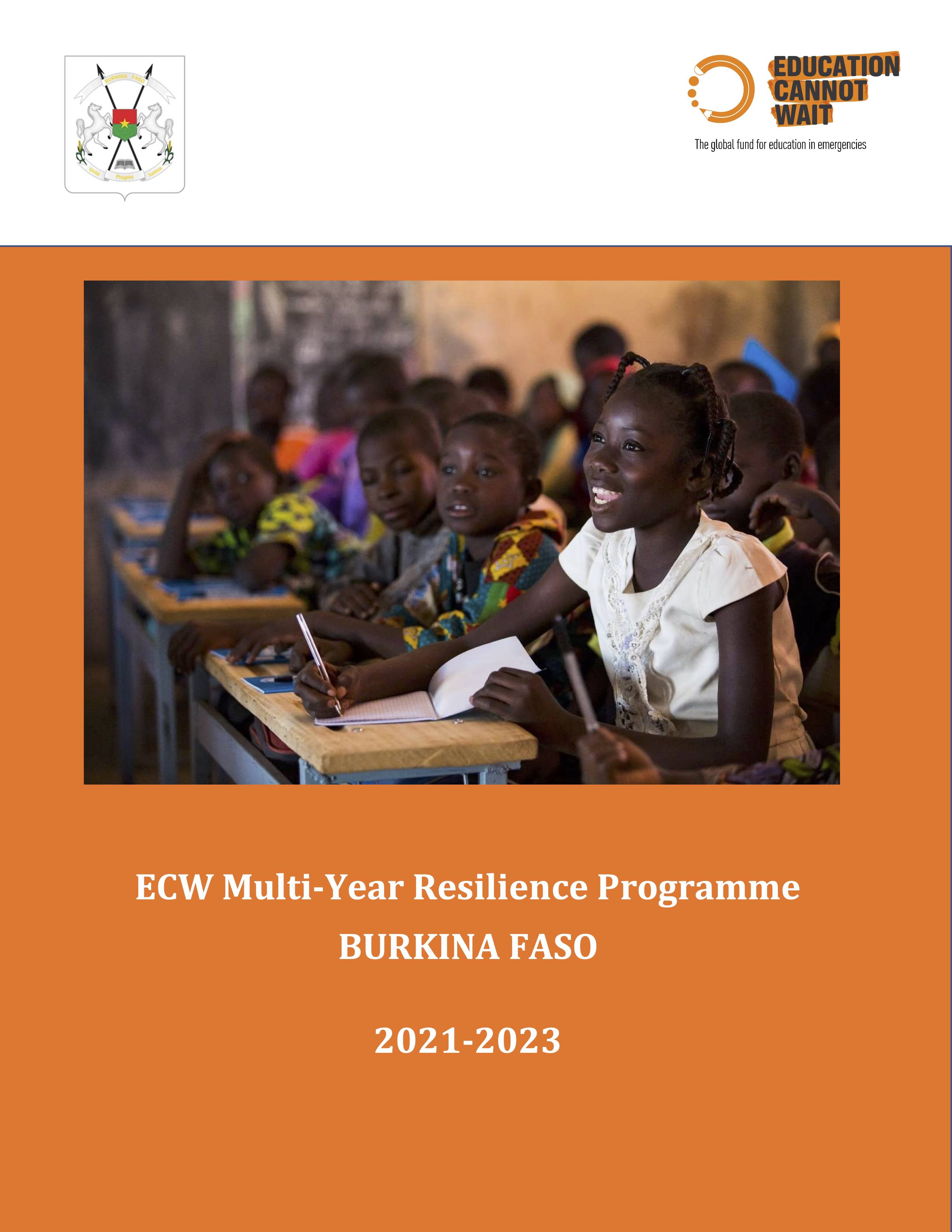ECW in Burkina Faso
Ongoing conflict and insecurity in Burkina Faso and the surrounding Sahel region has disrupted the lives of millions of people. Violence, insecurity, displacement, climate change and the COVID-19 pandemic led to multiple years of school closures, leaving children exposed to recruitment by armed forces, child marriage, forced labour and other forms of exploitation and abuse. Education Cannot Wait (ECW) supports partners through provision of holistic interventions targeting all children in their diversity, including children with disabilities. ECW’s Multi-Year Resilience Programme supports teachers’ training to address the mental health and psychosocial needs of students, building safe learning spaces, and remedial courses for out-of-school children and adolescents.
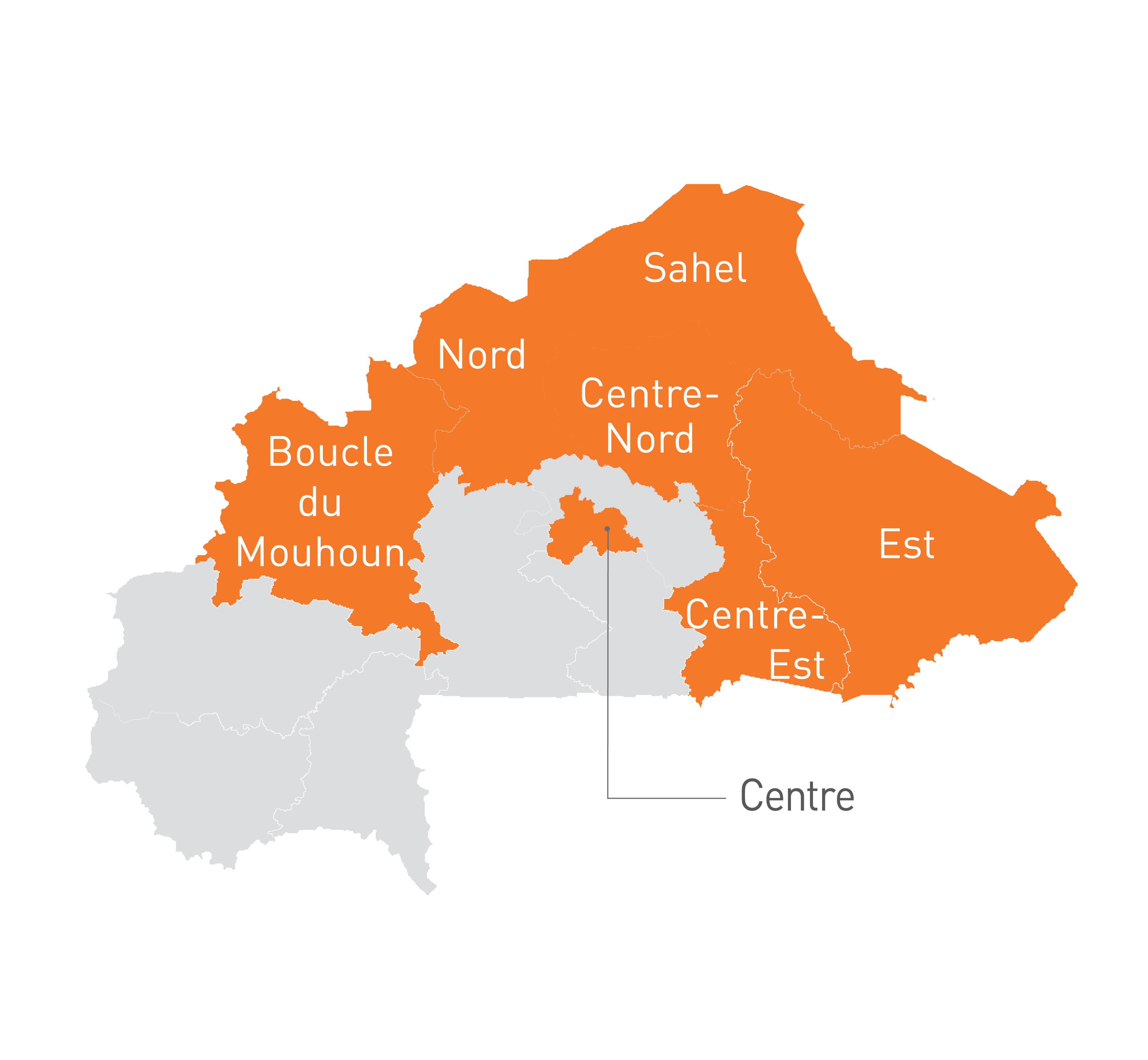
Investments
Financial Information
National Counterparts
Ministry of National Education, Literacy and Promotion of National Languages
Results
Additional Results
- Number of children and adolescents supported with school feeding programmes: 23,444
- Number of children who have listened to at least 80% of the educational radio programmes broadcast, either from home or in listening groups: 679,837
- Number of children and adolescents receiving cash transfers for education: 6,061
COVID-19 Results
Programme Info
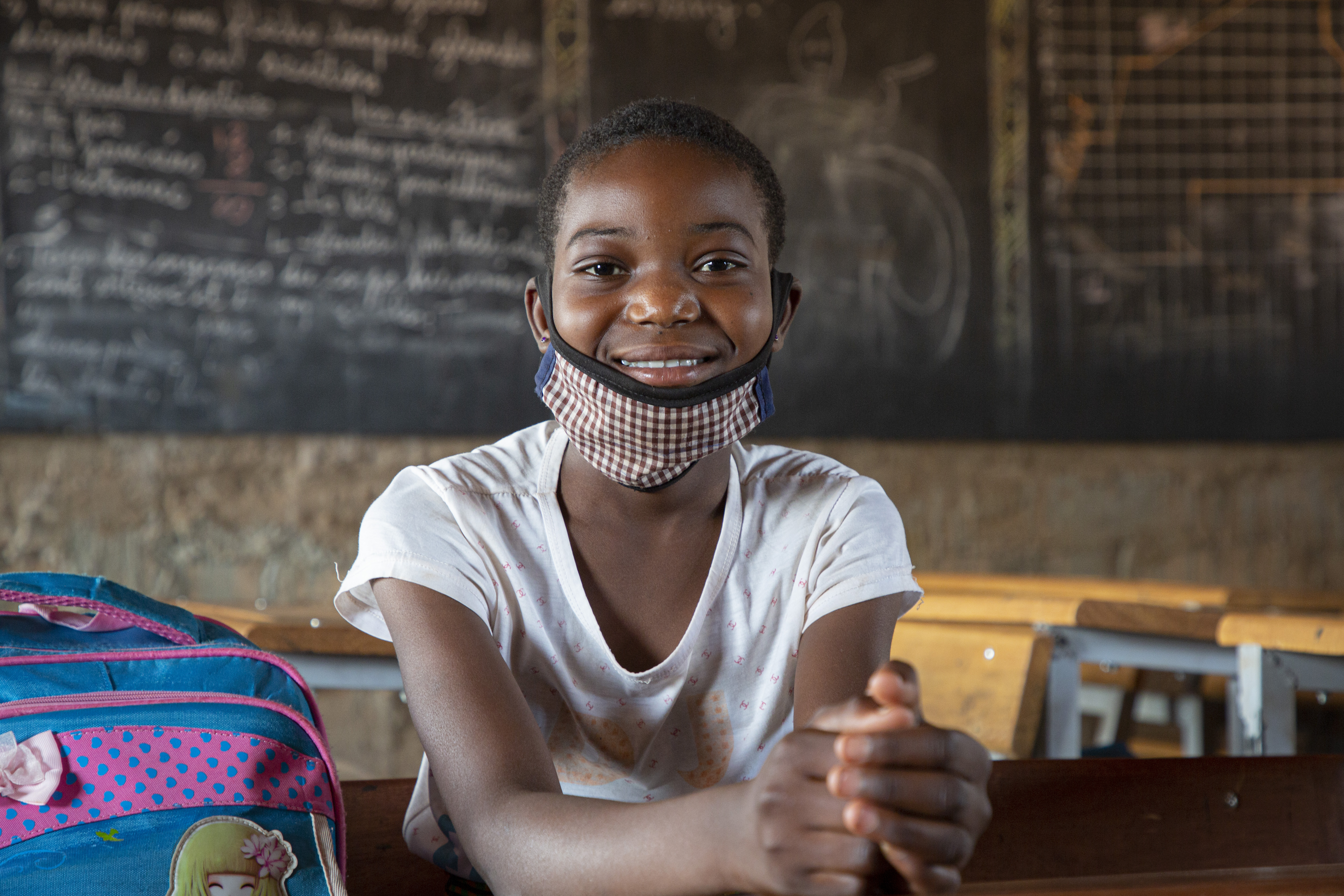
Violence has greatly impacted the education sector. Thousands of schools across the nation have been forced to close over the past several years, leaving children out of the classroom and vulnerable to recruitment by armed groups, sexual and gender-based violence, child labour, and other forms of exploitation and abuse. The COVID-19 pandemic led to the closure of schools, further heightening the crisis for several months. Many children were already struggling to return to school, and the pandemic presented a further barrier to getting back on track.
Burkina Faso has also experienced frequent floods and droughts due to climate change, which places a burden on families’ access to clean water, food, a safe environment and educational services.
ECW's Multi-Year Resilience Programme in Burkina Faso targets marginalised girls and boys in priority regions to expand access to safe learning spaces, cover school fees for families, provide remedial learning courses, strengthen the capacity in the learning environment, support educators, and engage the communities in which they work. ECW also provides support for girls and children with disabilities, increases enrolment rates, and implements a holistic approach that meets children and adolescents’ physical, mental and psychosocial needs.
Programme Components
- Covering school fees to increase enrolment. ECW funding facilitates access to education by paying school fees and enrolling students in formal education. Several students receive scholarships that cover their schooling for eight months at a time, while others are supported with the necessary assistance to complete their education.
- Providing learning spaces. Access to education is provided through the rehabilitation or construction of classrooms and temporary learning spaces. Additionally, ECW supports interventions that establish temporary learning spaces for preschool, primary and secondary education in communities damaged by violence.
- Providing remedial courses and improving learning outcomes. ECW funding reaches students, primarily girls, with individual learning materials and supports students through remedial classes. Accelerated schooling is implemented in learning centres to assist internally-displaced students. Remedial courses are provided for students in preparation for end-of-year exams.
- Training educators. Training for educators is provided. Several hundred teachers and community representatives received training on various topics, including psychosocial support, disaster risk reduction, the ‘safe school’ approach and child safeguarding. Additional teachers have been trained and have also developed risk mitigation plans in schools across Burkina Faso.
For more information on ECW's work in Burkina Faso please contact Country Lead Graham Lang (glang@un-ecw.org) and Programme Manager Noemi Robiati (nrobiati@unicef.org).



